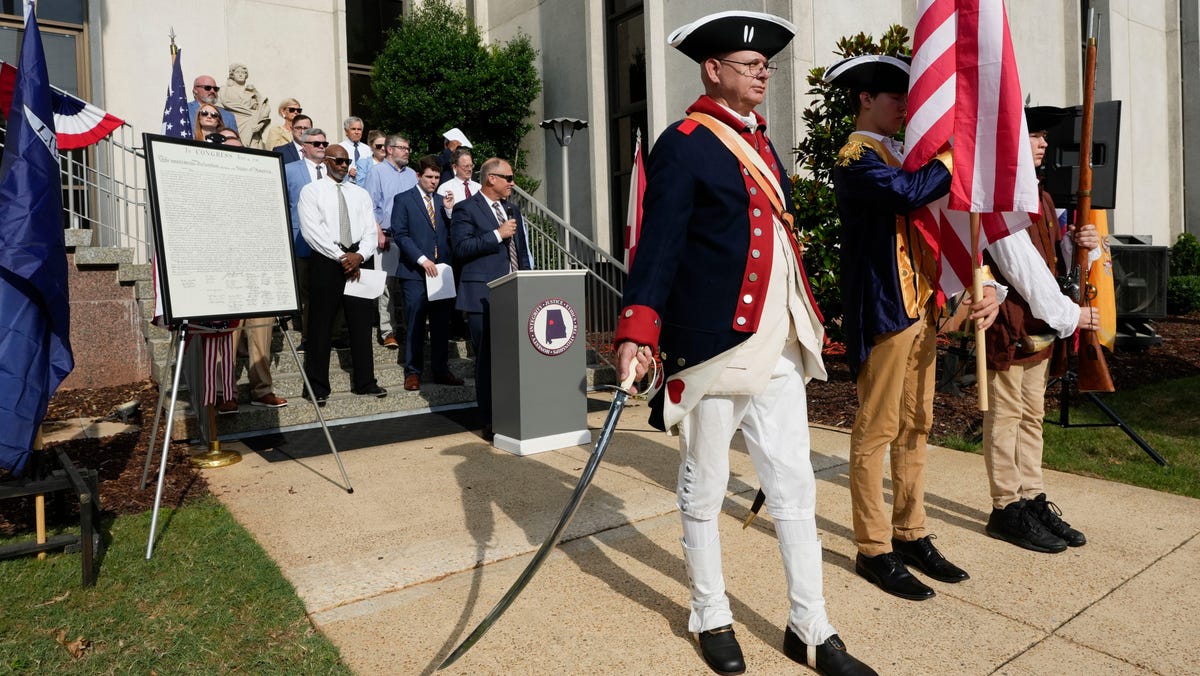As we reflect on the genius of the Declaration of Independence, let us also declare for patriotism ‒ one that’s renewed, real and reinvigorated.

Record-breaking 72M Americans set to travel over Fourth of July
A record 72 million Americans are expected to travel at least 50 miles from home over the Fourth of July holiday period, which runs from June 28 to July 6, according to AAA.
unbranded – Newsworthy
- Most Americans consider themselves patriotic but disagree on what patriotism means.
- A new survey reveals a generational divide in how patriotism is perceived.
- Many Americans believe that political polarization, social media and the news media are weakening patriotism.
- Despite these divisions, there’s a strong desire for a renewed sense of unity and a more inclusive understanding of patriotism.
- Americans want better civic education, support for veterans and a focus on shared values to strengthen patriotism.
Most Americans consider themselves patriotic, but fewer and fewer people agree on what that means.
A recent national survey of 2,500 adults found most Americans feel that patriotism itself now divides more than unites us as citizens. That contradiction ‒ in which we’re proud of country but alienated from what that pride means ‒ is a symptom of our current state of civic dysfunction.
Our research, conducted by independent pollsters at LSG, found that patriotism is being pulled in different directions, but that Americans want to put it back together again.
As Independence Day marks the start of a year-long celebration of America’s 250th birthday, let it be an inflection point for us all to give patriotism the attention and reset it deserves. And that reset starts with asking: What does patriotism mean for you?
What is causing the divisions within our country?
For some, it means what it always has. When given a list of options, among the top choices in our survey were supporting the military (by 59% of the respondents), flying the flag (52%) and celebrating national holidays like July 4 (45%).
For some respondents, it means voting (61%), speaking out against political leaders (49%) and pushing the country, sometimes uncomfortably, to live up to its promises.
Many also point to respecting American values and traditions (63%) and upholding the Constitution (63%) as core tenets of patriotism.
These are all valid expressions of love for one’s country, but we don’t really treat them that way anymore. Too often, patriotism has become a political signal instead of a shared value.
And the data reveals a nation losing faith in how our shared values are ultimately being lived.
When asked what is weakening patriotism today, Americans point to a familiar list: political polarization (48%), social media (39%) and the news media (39%).
Obvious, but no less maddening, 42% of Americans say the behavior of our elected officials actively undermines patriotic sentiment, and these are people we vote for.
In short, many Americans believe the institutions that should be reinforcing shared values are actively eroding them.
LSG’s research, the Patriotism Pulse Index, is a 0-100 scale designed to capture how patriotic people say they feel today and track the evolution of patriotism in the year ahead. The initial results reveal a stark generational divide.
Members of the Greatest Generation, born between 1901 and 1927, scored an 82. Baby boomers, born between 1946 and 1964, came in at 75. But Generation Z, spanning 1997 to 2012, scored just 56 ‒ the lowest of any group we surveyed. Millennials, born from 1981 to 1996, weren’t far ahead at 64.
This isn’t just a softening of sentiment. It’s a signal that the traditional narratives and symbols of patriotism are failing to connect with the generations we need to carry them forward.
Not too late to rebuild unity
Thankfully, there is encouraging news.
Despite the confusion and emotions around patriotism, the desire for a renewed sense of unity is strong. About 8 in 10 Americans believe it is important we have a concept of patriotism that unites broad groups of Americans. About 7 in 10 say it’s essential to have a version of patriotism that can bring people together, especially across lines of disagreement.
Throughout the data, answers suggest Americans overwhelmingly want to dust off that patriotism we grew up with or heard about from elders ‒ a patriotism rooted in shared responsibility, not performative politics or political theater.
This is no “longing for the past” moment. Americans aren’t looking to return to some idealized version of past patriotism. They want a new ‒ or “next” ‒ patriotism. Something more inclusive, constructive and reflective of who we are today as citizens and neighbors.
Asked what would draw out that hopeful optimism again, respondents called for better civic education (51%) and strengthening public support for veterans (53%). They also want schools to teach democratic values (51%).
They support policies that promote and encourage more civic engagement to strengthen our country (50%). They want our elected leaders to stop trafficking in rage politics and appeal to our better instincts rather than exploiting our divisions. And they want to hear more stories of Americans working together for the country (37%).
That is something Americans can get behind; 57% think it’s possible to shape patriotism in a way a broad swath of the country can support. While that number may not be overwhelming, it’s an optimistic start in today’s politically overcharged atmosphere.
As we reflect on the genius of the Declaration of Independence, let us also declare for patriotism ‒ one that’s renewed, real and reinvigorated. Like freedom, patriotism can only survive through action, and service over slogans.
Through that service, we just might unite around a new patriotism that fills us all with pride for the next 250 years.
Ben Jenkins is a partner at LSG in Washington, DC. Katie Rice is a manager in LSG’s research, insights and advocacy practice.











1win расмий сайты 1win расмий сайты